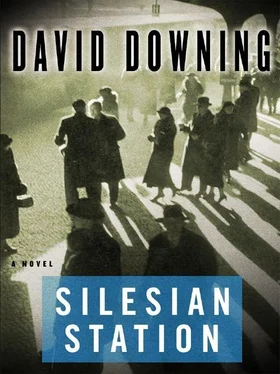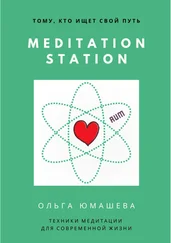David Downing - Silesian Station
Здесь есть возможность читать онлайн «David Downing - Silesian Station» весь текст электронной книги совершенно бесплатно (целиком полную версию без сокращений). В некоторых случаях можно слушать аудио, скачать через торрент в формате fb2 и присутствует краткое содержание. Жанр: Шпионский детектив, на английском языке. Описание произведения, (предисловие) а так же отзывы посетителей доступны на портале библиотеки ЛибКат.
- Название:Silesian Station
- Автор:
- Жанр:
- Год:неизвестен
- ISBN:нет данных
- Рейтинг книги:5 / 5. Голосов: 1
-
Избранное:Добавить в избранное
- Отзывы:
-
Ваша оценка:
- 100
- 1
- 2
- 3
- 4
- 5
Silesian Station: краткое содержание, описание и аннотация
Предлагаем к чтению аннотацию, описание, краткое содержание или предисловие (зависит от того, что написал сам автор книги «Silesian Station»). Если вы не нашли необходимую информацию о книге — напишите в комментариях, мы постараемся отыскать её.
Silesian Station — читать онлайн бесплатно полную книгу (весь текст) целиком
Ниже представлен текст книги, разбитый по страницам. Система сохранения места последней прочитанной страницы, позволяет с удобством читать онлайн бесплатно книгу «Silesian Station», без необходимости каждый раз заново искать на чём Вы остановились. Поставьте закладку, и сможете в любой момент перейти на страницу, на которой закончили чтение.
Интервал:
Закладка:
'They're gone,' Slaney announced in response to Russell's bemused look. 'The Brits and French, that is. They all took trains to Denmark last night.' He lifted a large ring of keys from the table and let it drop. 'I've been left seven cars to look after.'
'Just the journalists?' Russell asked.
'Everyone but the diplomats.'
Russell sat down. 'It's coming that quickly?'
Slaney shrugged. 'Tomorrow, it looks like.
'Christ.' It was possible, he realized, to both expect an event and be surprised when it actually happened.
'The only question is whether Hitler will waste any time trying to buy off you Brits and the French. But I don't think it'll make any difference, one way or the other. He needs a war. It's the only way he can get the last one out of his system.'
Russell said nothing. He needed to talk to Paul, he realized. The schools were still out – he might be at home.
Ilse answered. 'He's out playing football with Franz and a few other friends,' she told him. 'You could try later.'
'No, I'll be seeing him tomorrow. Ilse,' he began, not sure what to say, 'Ilse, things are not looking good. Does Paul have any real idea of what's coming, what it's going to be like?'
There was a brief silence at the other end. 'Who knows?' she said eventually. 'He says all the right things. But do any of us know, really? Matthias says the people who went through the last war will all make the mistake of expecting the same, and those that didn't won't have a clue.'
It always galled him to admit it, but Matthias was probably right. He said so.
'Why don't you ask Paul tomorrow?' Ilse suggested.
'I will. We may be at war by then.'
He hung up, took his leave of Slaney, and took a tram south to Hallesches Tor. The Hanomag was still in the courtyard, its roof devoid of obvious foot-marks, and an anxious Frau Heidegger was at her usual post. She greeted him with a big smile, which made him feel good – he hadn't expected that she would hold his British ancestry against him, but you never knew.
She was, however, keen to learn the prospective enemy's intentions. 'It all seemed so clear yesterday,' she said, reaching for the dreaded coffee pot. 'Everyone thought the Pact would sort everything out. The English and the French would realize that they couldn't help the Poles, and the Poles would have to come to their senses and there'd be no need for a war. But nothing seems to have changed,' she lamented. 'The English and French won't give up their guarantee. I don't suppose they can now. It was so stupid of them to give one in the first place…'
Russell took a sip of coffee and wished he hadn't.
'When it comes down to it,' Frau Heidegger went on, 'does it really matter who owns Danzig or the Corridor? It's been twenty years and this is the first we've heard about Germans being killed in the Corridor. If they are then I suppose we have to do something about it, but it doesn't seem worth another war. Let's hope another conference can sort it out. By the way, don't forget there's another air raid rehearsal next Wednesday – Beiersdorfer will want to know if you'll be here.'
It was a timely visit from another portierfrau that set Russell free. He picked up a few clothes from his apartment – his entire wardrobe was moving across town, piece by piece – and headed back to the city centre in the Hanomag.
He and Slaney had only just finished lunch when two pieces of news filtered through to the waiting journalists in the Adlon Bar – the British Ambassador Sir Nevile Henderson had gone to see the Fuhrer and, rather more significantly, all telephone and telegraphic contacts between Germany and the outside world had been cut. As one wag put it, if Henderson and Hitler emerged naked onto the Wilhelmstrasse and danced a waltz together, there was no way of telling the world.
Russell hung around, keen to know how the meeting turned out, but the Embassy refused to release a statement, let alone answer questions, and the pointlessness of remaining became increasingly obvious. That and the danger of drinking too much ahead of their appointment with Eyebrows.
He arrived home to a transformed Effi – he had to look at her twice to make sure it was her. She had, as she'd implied, become a veritable mistress of disguise. The basics had not been changed – she was still a slim, dark-haired, reasonably young and attractive woman – but everything else had been subtly shifted. Her hair seemed thicker, her eyes darker, her nose slightly larger. She looked more like a stereotypical Jewess, he thought, which was presumably the intention.
She was dressed differently too. Neatly, but austerely. Everything about her wardrobe was slightly old-fashioned, as if the world had ended in 1933. As indeed it had, in so many ways, for Germany's Jews.
And when she got up and walked around there was an awkward defensiveness in the way she moved that bore no relation to Effi's natural grace. It was uncanny. He had seen every film she had made, but never before had he realized just how good she was.
'And now for you,' she said. They arrived at Silesian Station an hour ahead of the train's scheduled arrival time. There was no sign of Drehsen's Mercedes in its usual spot, and no sign of the man himself on the concourse. Effi took the suitcase and hurried up the steps to the platform, leaving Russell to check that the train was running and on time. It was.
He bought a newspaper and took up position opposite the taxi rank, leaning up against the stone wall of the station. The human traffic slowly thinned as the rush hour drew to a close, the majority of faces more drawn and anxious than a Friday evening usually warranted. Most Berliners, he guessed, were going home to turn on their radios, hoping not to hear martial music and warnings of an 'important announcement'.
Fifty minutes went by with no sign of the Mercedes. Time was running out. Russell walked back into the concourse and there the man was, standing in the middle of the open space, facing the steps to the platform. Where the hell had he parked his car?
Russell hurried back out. It wasn't on the station forecourt, so where? He strode briskly down the side of the station to Koppen-Strasse, which ran under the elevated tracks at the western end. Nothing. He hesitated, looked at his watch. He only had five minutes.
A train rumbled across in the right direction, steam bellowing into the early evening sky. Too early for the Breslau train, he told himself. Another headed the same way as he walked under the bridges, this one with the reassuring hum of a Stadtbahn electric. Turning the corner he saw a short line of cars parked alongside the far side of the station. The last was a Mercedes Cabriolet, but it carried the wrong number.
Russell started running. The station side seemed to stretch forever, and he had a painful stitch in his side by the time he reached its end. Turning into Frucht-Strasse, which ran eastwards under the tracks, he saw the car. It was parked on the far corner, in – as Russell ruefully realized – the very next place that Drehsen would have tried if his usual spot had been occupied.
He was out of time, and a train was steaming into the station above him, thundering over the bridge. As he reached the car a couple of girls, prostitutes probably, walked across the end of the street, the click of their heels amplified by the iron ceiling. He stopped for a second, as if searching his pockets for cigarettes, and caught sight of a man with a moustache and slicked-back hair in the black window of a defunct shop. It was himself.
The girls gone, he took another look round, crouched down, and stabbed the driver's side front tyre with the awl Effi had purchased that morning. There was a commendably violent hiss, and the tyre began deflating. From his other pocket he drew a small package of newspaper, gingerly removed the sharp piece of bottle glass it contained, and placed it just behind the wounded tyre. The temptation to disable the spare tyre as well, and make absolutely sure, was almost overwhelming, but he knew that would look too suspicious.
Читать дальшеИнтервал:
Закладка:
Похожие книги на «Silesian Station»
Представляем Вашему вниманию похожие книги на «Silesian Station» списком для выбора. Мы отобрали схожую по названию и смыслу литературу в надежде предоставить читателям больше вариантов отыскать новые, интересные, ещё непрочитанные произведения.
Обсуждение, отзывы о книге «Silesian Station» и просто собственные мнения читателей. Оставьте ваши комментарии, напишите, что Вы думаете о произведении, его смысле или главных героях. Укажите что конкретно понравилось, а что нет, и почему Вы так считаете.












